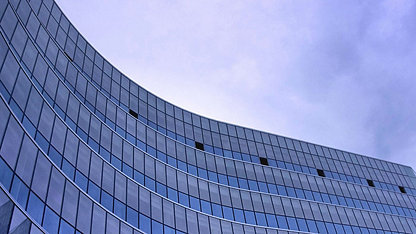Facilities management professionals have demonstrated their resilience and critical contribution through the pandemic. In fact, the latest RICS FM Market Survey recorded the highest demand for FM professionals since the survey began. As more people return to offices, the profession has an opportunity to further demonstrate the value of its expertise in leading organisations towards safe and purposeful decision-making on spaces that better support their people. We consider the trends that have emerged through the last 18 months that will shape how FM professionals successfully manage office space.
‘Hygiene’ factors will remain for some time
Safety is still the priority, and measures put in place through the pandemic are likely to continue to bring reassurance to workers and ensure organisations are geared up for changes in government advice and restrictions. This means reduced capacity will likely continue and measures such as signage and one-way flows will probably be retained. These processes speak to the important balance that will need to be struck in making workers feel safe while also providing a functioning, productive office. A strong focus on communicating with the people returning to buildings will continue and in fact, this is two way. It will be as much about understanding what workers need from their spaces, as it will be about communicating measures and requirements they will need to follow.
Greater appetite for evidence led decision-making
The role of offices and how we work were an issue before the pandemic, but COVID-19 has accelerated adaptation, innovation and trends. So much evidence and data needs to be captured before we have concrete solutions for what the future office should look like. For example, opening an office filled with collaboration space may alienate those who need to work alone in a quiet environment but don’t have that space at home. Not everyone wants to use a building the same way, so how do we serve all the people who need to use it?
“If the office of the future is likely to be smaller, it’s also likely to be more collaborative because the purpose of workplaces is changing. The reasons to go into the office will need to be more compelling and employees will have a new set of outcomes in mind. Technology, wellbeing, sustainability and flexibility will be the key drivers of change. ”
Kath Fontana, RICS President
Measurement is vital in terms of user experience, business performance, financial cost and so much more – it’s a constantly evolving process that will determine how organisations can use space effectively and efficiently. RICS is developing a new standard – the International Building Operations Standard (IBOS) - that will clearly set out the data that needs to be captured across a range of indictors to ensure that building performance can be measured not only for compliance and cost purposes, but also to assess how it impacts user experience.
Reimagining for purposeful use of space
Many people will be nervous about the commute to the office, and no organisation wants the return to the office to also be anxiety-inducing. This is a real opportunity to reimagine how we in the FM sector use space and create great new environments that people want to work in.
A good office doesn’t necessarily mean a new one; it’s one that uses the space well and provides a good balance of quiet zones and collaboration spaces. Ultimately, the objective is everyone doing their job well, and the building should be there to support that. There will be new and important questions around purpose that will determine the best FM solutions for any organisations. For example, if staff are already performing well outside of the office, is there a real need to default to all of them returning at the same time? And do new staff have a real opportunity to become part of the culture of the organisation at home? At the heart of decision-making will be an approach that recognises that if you are going to bring people together, there needs to be a purpose behind it.












